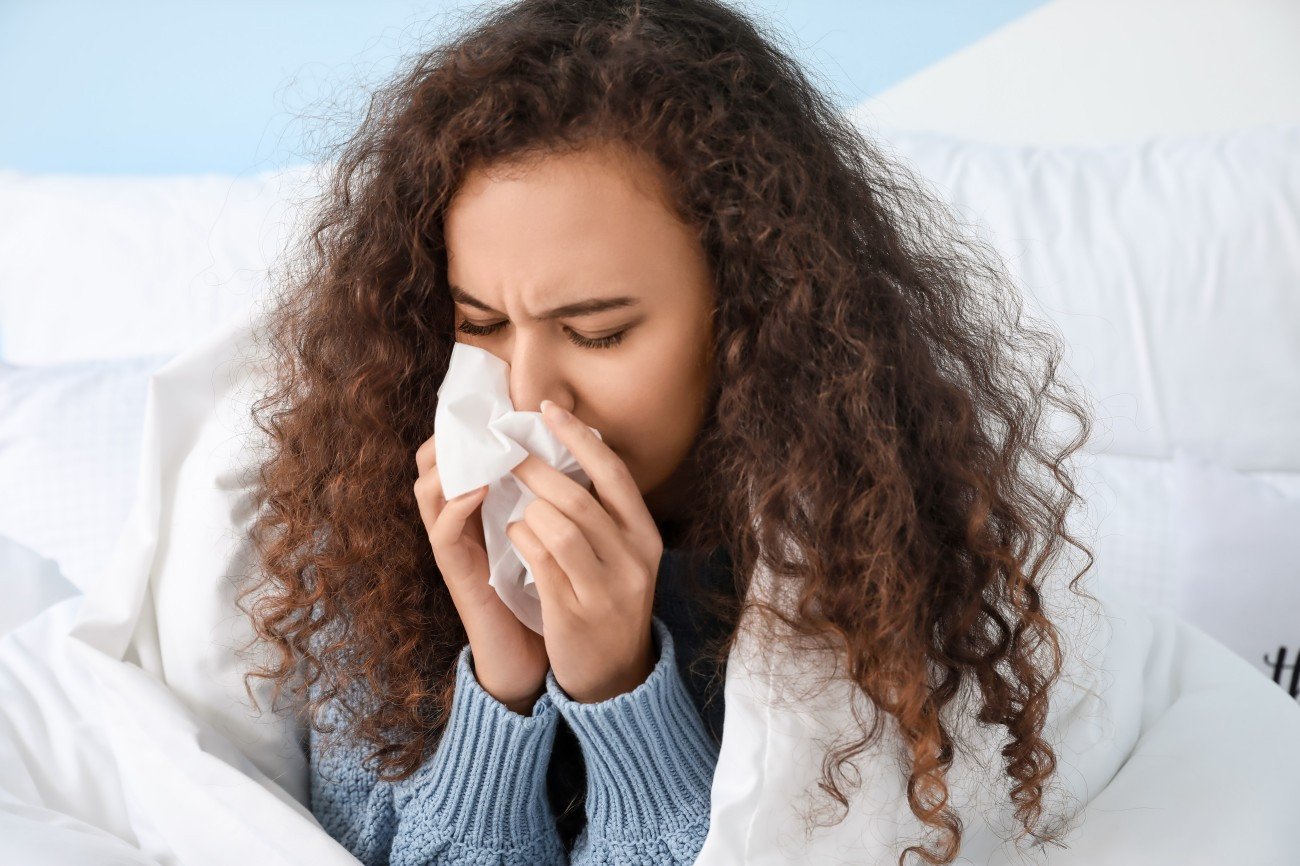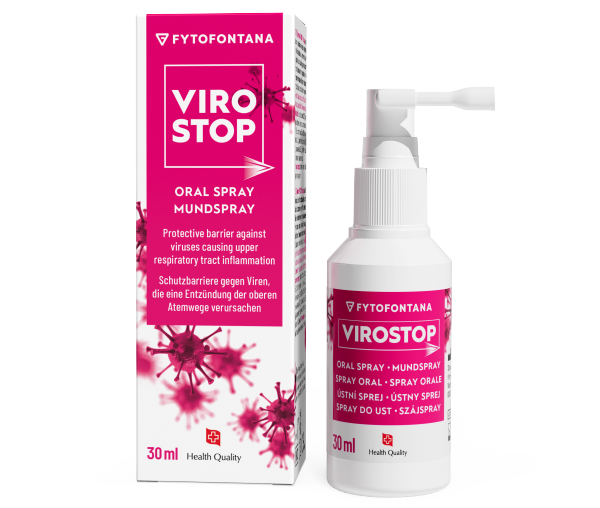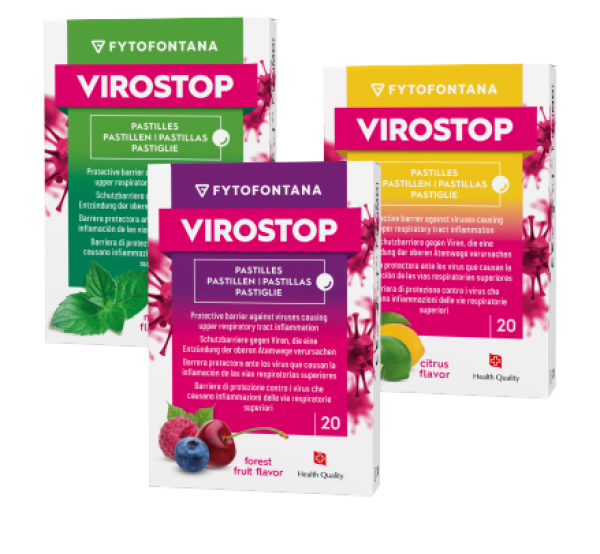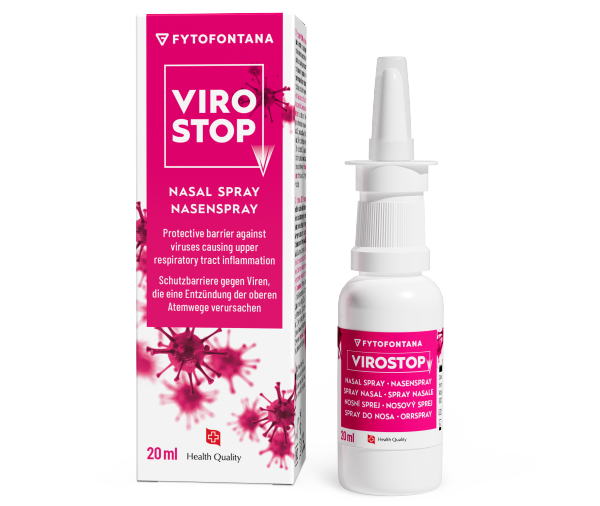A congested nose can be incredibly uncomfortable, affecting both day and night. Discover effective ways to ease nasal congestion during colds and flu.
One of the most bothersome symptoms of a cold is a congested or stuffy nose. It can hinder comfortable breathing, disrupt peaceful sleep, and make the entire day unpleasant. Fortunately, there are several ways to relieve nasal congestion, and now, there's an over-the-counter product available that directly targets cold and flu viruses.
Understanding Nasal Congestion
Many people believe that nasal congestion is solely caused by excess mucus, often referred to as "snot." However, this isn't entirely accurate. Behind that congested feeling usually lies an ongoing acute viral or bacterial infection of the upper respiratory tract, which leads to the swelling of the mucous membrane.
It's considered a cold if symptoms persist for a maximum of 14 days. If they last longer, it's advisable to consult a doctor to explore other potential causes. In such cases, allergies or hay fever, nasal polyps, anatomical changes in the upper respiratory tract, or environmental irritants are often responsible.
Why do we have a stuffy nose during a cold?
Both viral and bacterial infections of the upper respiratory tract trigger an immune response aimed at rapidly combating the infection. Whenever the body encounters damage of any kind, including infections, it initiates an inflammatory reaction.
Inflammation in the body exhibits five key symptoms. In the nose, we feel it as pain, tingling, or burning sensations. If we were to examine the nasal mucosa internally, it would appear redder than usual and slightly warmer to the touch. It also affects nasal function, making it difficult or impossible to breathe through the nose. Lastly, the mucous membrane swells, creating a sensation of blockage. While this swelling allows immune cells and essential substances to move more effectively within the tissue to combat viruses and bacteria, excessive swelling obstructs normal breathing. Therefore, it's essential to reduce this swelling.
The ongoing infection also triggers increased mucus production, which serves as a defense against pathogens. Initially, mucus is thin and clear, but as the infection progresses and viruses, bacteria, and mucosal and immune cells are killed, it thickens.
Natural ways and home remedies for stuffy nose
To relieve a blocked nose, we need to reduce the swelling of the mucous membrane,
then dilute and support the removal of the produced mucus from the airways.
Natural remedies include methods that involve moist and warm air, such as using air humidifiers, steam inhalation, or taking a warm shower or bath.
Saltwater solutions are helpful. Nasal rinsing can be performed using a water bottle or saline inhalation.
Adequate hydration is crucial during infections and colds. Drinking plenty of water and teas is essential.
Decongestants: over-the-counter medications that relieve nasal congestion
If natural remedies aren't sufficiently effective, consider combining them with medications designed to reduce nasal mucosa swelling. Decongestants can achieve this by reducing excessive blood flow to the nasal mucosa. Over-the-counter options include nasal sprays or warm beverages for the flu and colds.
Remember not to use decongestants continuously for more than 7 days. They should only be used when experiencing significant difficulties.
Thoroughly clearing mucus from the nose by blowing it is a critical aspect of treating a cold. In young children, a mucus extractor can be used. Whether opting for natural methods or decongestants, always blow your nose thoroughly after their use.
Addressing Viruses Directly After Clearing Nasal Congestion
Most colds, as well as the flu, are caused by viruses. Antibiotics are ineffective against viruses, and until now, treatment options focused on symptom relief and immune support.
Now, there's a way to directly prevent viruses from attaching to cell surfaces and entering them. The combination of VIROSTOP oral and nasal sprays forms a protective layer on the mucous membranes of the upper respiratory tract. This helps alleviate cold symptoms and prevents the entry of bacteria and viruses into the body. Starting treatment as soon as possible, ideally at the first signs of a cold, is recommended.
Remember, when experiencing cold symptoms, you are contagious to those around you. VIROSTOP products can provide preventive protection for your loved ones. It's essential for each household member to have their own package to prevent potential infection transmission among family members.







